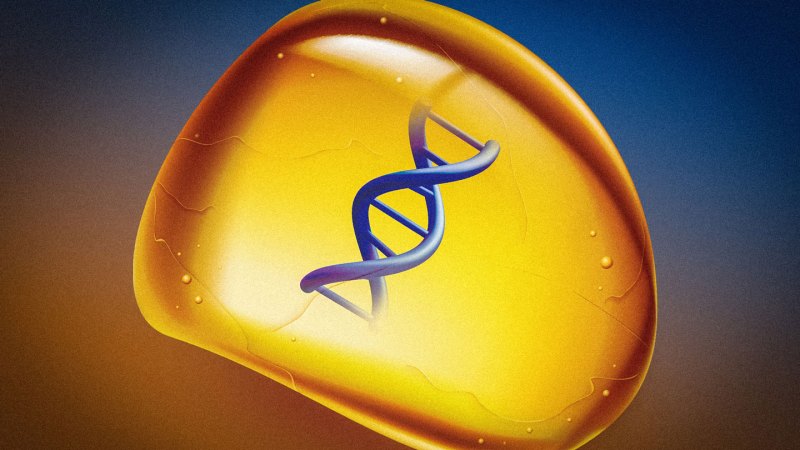
Extreme Climate Survey
Scientific news is collecting questions from readers about how to navigate our planet’s changing climate.
What do you want to know about extreme heat and how it can lead to extreme weather events?
The storage density of DNA is many times higher than that of any device humans have created. For example, if every movie ever made was encoded in DNA, it would fit within the volume of a sugar cube with room to spare. But DNA is also incredibly fragile and needs careful handling and storage. Existing preservation methods require freezing temperatures, specialized equipment, or hazardous chemicals such as hydrofluoric acid. Researchers have tried to store DNA at room temperature in silica and other materials, without success.
Banal and his colleagues’ new method, called Thermoset-Enhanced Xero-preservation (T-REX), encapsulates DNA in glassy polymer networks at room temperature. By using a combination of chemicals that “open” the structure of the polymer, researchers can obtain the DNA. The material is similar to polystyrene plastic, chosen by the team because it does not break down easily in nature: Anything encased in plastic can last a very long time. But the team made a small but important addition to the plastic – a chemical weakness in the form of a molecule called thionolactone. “This allows us to deconstruct the polymer to get the information back,” says Banal.
To test the elasticity of the polymer, the researchers encapsulated the encoded DNA strands Jurassic Park theme music and the entire genetic instruction book of a human into the amber-shaped material and then exposed it to temperatures of 55°C, 65°C and 75°C with 70% humidity for seven days. The team used benign reagents, rather than hydrofluoric acid, to extract the stored DNA, then used DNA-reading techniques to retrieve the stored information, all in a matter of hours—not days. did this with silica-based materials.
Once extracted, the DNA can even be re-encapsulated using the same material, in “a kind of circular chemistry that’s actually very beautiful,” says Banal.
The T-REX method appears to be more efficient than existing methods to store DNA at room temperature, says Dina Zielinski, a computational biologist at Whitelab Genomics, a company in Paris focused on creating digital tools to accelerate the development of medicines. “So although one could argue that the improvements are incremental [compared with silica methods]they bring us practically closer to being able to store nucleic acid for hundreds, even thousands of years at room temperature, which has far-reaching implications.”
Banal and colleagues are working to make the method simpler so that it could one day be used in the field to collect and store genetic data or other specimens, such as seeds or proteins, in remote locations — or even are used to transport biological molecules for space research. .
#Jurassic #Park #inspires #store #DNA #data
Image Source : www.sciencenews.org